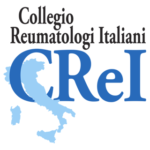
Do not request the dosage of ENA (Extractable Nuclear Antigens) / ENA profile in patients with Raynaud’s phenomenon before having performed a capillaroscopy.
Raynaud’s phenomenon mainly affects women between 20 and 40 years of age. In a high percentage of cases ranging between 50% and 90%, this phenomenon is primitive; in such cases it is not necessary to make specific therapies, but only a symptomatic treatment and protection against cold and other triggering factors. In such cases the capillaroscopic finding is almost completely normal, in some cases it may sometimes be observed slight dilation of the loops with erythrocyte aggregation phenomena. Recent studies have shown that performing ENA indiscriminately to all patients with Raynaud’s phenomenon may be inappropriate
Sources
1. Lisa Anne Davis, Barbara Goldstein, Vivian Tran, Angela Keniston, Jinoos Yazdany, Joel Hirsh, Amy Storfa, and JoAnn Zel; Applying Choosing Wisely: Antinuclear Antibody (ANA) and Sub-Serology Testing in a Safety Net Hospital System. Open Rheumatol J. 2015; 9: 82–87.
2. Minier T, Guiducci S, Bellando-Randone S, Bruni C, Lepri G, Czirják L, Distler O, Walker UA, Fransen J, Allanore Y, Denton C, Cutolo M,Tyndall A, Müller-Ladner U, Matucci-Cerinic ; EUSTAR co-workers; EUSTAR co-workers. Preliminary analysis of the very early diagnosis of systemic sclerosis (VEDOSS) EUSTAR multicentre study: evidence for puffy fingers as a pivotal sign for suspicion of systemic sclerosis. Ann Rheum Dis. 2014 Dec; 73(12): 2087-93. doi: 10.1136/annrheumdis-2013-203716. Epub 2013 Aug 12.
3. Valentini G, Marcoccia A, Cuomo G, Vettori S, Iudici M, Bondanini F, Santoriello C, Ciani A, Cozzolino D, De Matteis GM, Cappabianca S, Vitelli F, Spanò A. Early systemic sclerosis: analysis of the disease course in patients with marker autoantibody and/or capillaroscopic positivity. Arthritis Care Res (Hoboken). 2014 Oct;66(10): 1520-7. doi: 10.1002/acr.22304.
Attention. Please note that these items are provided only for information and are not intended as a substitute for consultation with a clinician. Patients with any specific questions about the items on this list or their individual situation should consult their clinician.


Recent Comments